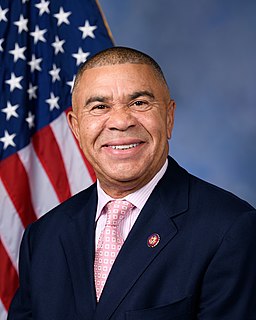A Quote by J. B. Pritzker
Black and brown communities are significantly and disproportionately impacted by deficiencies in our criminal justice system.
Related Quotes
I think the biggest problem in our country is mass incarceration and the prison-industrial complex. From the Rockefeller drug laws to stand your ground to stop and frisk, all these are pointing people, especially and disproportionately black and brown people, towards the criminal-justice system. It's depleting whole generations of people.
The fact that more than half of the young black men in any large American city are currently under the control of the criminal justice system (or saddled with criminal records) is not - as many argue - just a symptom of poverty or poor choices, but rather evidence of a new racial caste system at work.

































